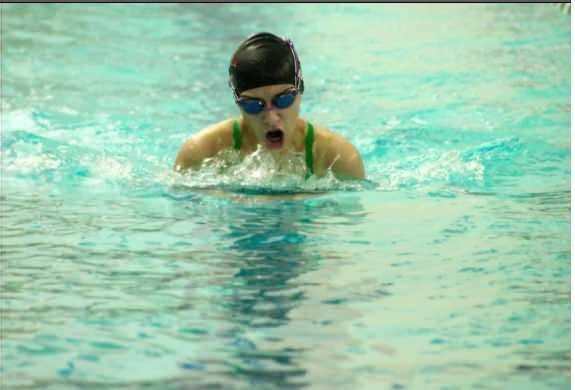From tennis legend Billie Jean King’s 39 grand slam titles and the U.S. women’s national soccer team winning four world cup titles from 1991-2019; to University of Massachusetts alumnae track and field athlete Heather MacLean, field hockey’s Sarah Hawkshaw and Marlise van Tonder all making their countries Olympic teams in the 2020 Tokyo Olympics, women’s sports have made great strides over the past several decades.
However, while these victories throughout women’s sports are being accomplished, I have seen a noticeable discrepancy in the amount of media coverage that women’s sports receive in comparison to men’s sports. This lack of visibility can be harmful for how young women and girls think not only about sports but also about themselves.
UMass junior special education and natural resource conservation major Brittney Testa played soccer and ice hockey throughout her high school career at Leominster High School. Testa feels as though the lack of access to women’s sports in comparison to men’s sports while growing up impacted how she thought about her future in sports.
“I wasn’t thinking of [sports] as a career for myself,” Testa said. “Whereas with men’s soccer, if they are really good they could be on the New England Revolution, which is a well-known team, where no one hears about a female equivalent. I never thought about being a professional soccer player or ice hockey player because it didn’t have the same value as men’s teams.”
While women’s sporting events do receive some press attention, such as televised games and coverage on news stations, the majority of women’s sporting events I’ve seen broadcasted are only the major ones.
According to the 2021 “Women in Sport Report”, it was found that globally, the 46 percent of people who became interested in watching and following women’s sports is due to large sporting events like the Olympics, World Cups and Commonwealth games.
UMass sophomore Spanish major Ailish McBride, who ran three seasons of track and field for Mansfield High School, has only viewed limited amounts of women’s sporting events.
“I watched the women’s [U.S] soccer team when they were in the Olympics, I’ve seen the women’s skiing in the Olympics and I’ve seen little snippets of women’s WNBA games but not much,” she said.
Coverage of major sporting is vital. However, it does not remedy the fact that regular women’s sports games are not always covered and are not easy to find.
Testa added, “I would barely see any [women’s sports games] and if I wanted to watch women’s sports I would have to actively go and seek it. On TV I would have to flip through the channels to try and find it.”
Little media coverage of women’s sports not only limits female athletes from being well known and getting the recognition they deserve but it also plays a large role in how young women and girls feel about sports.
Seeing little to no media coverage of women’s sports can affect young women and girls’ attitudes towards sports.
“Any game that you see is men’s [sports] and men just have a lot more support with being athletic and playing sports,” McBride said. “Women don’t necessarily have as much support, you might have support from your family but it’s not as widespread and I think that’s what can deter people from trying to do them [sports].”
Representation of women in sports can be an essential factor in how female athletes think about their future. Testa explains the impact that an increase in the media coverage of women’s sports could have.
“It’s important for young girls who are interested in sports to see what they could grow up to be like, so I definitely would support it [women’s sports] becoming more shown in the media,” Testa said.
As a competitive swimmer for eight years, growing up there were very few women athletes that I saw in the media. However, the women that I did see such as U.S. Olympic swimmers Rebecca Soni and Katie Ledecky were a crucial part of my motivation to keep swimming.
Adequate coverage of women’s sports in the media matters because it encourages young women and girls to achieve their athletic aspirations and levels the playing field for women in sports.
Corinne Arel can be reached at [email protected] and followed on Twitter @CorinneArel_09.


















